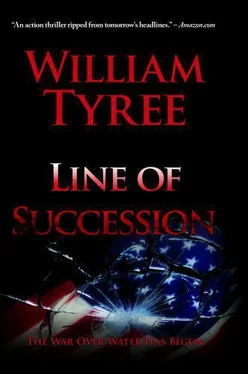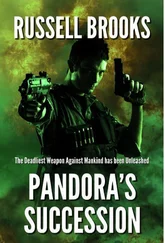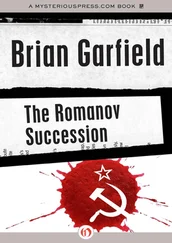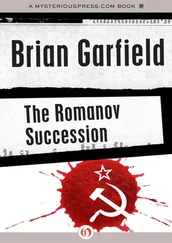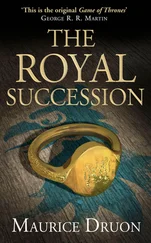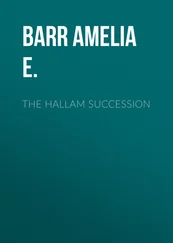William Tyree - Line of Succession
Здесь есть возможность читать онлайн «William Tyree - Line of Succession» весь текст электронной книги совершенно бесплатно (целиком полную версию без сокращений). В некоторых случаях можно слушать аудио, скачать через торрент в формате fb2 и присутствует краткое содержание. Год выпуска: 2010, Издательство: Massive Publishing, Жанр: Триллер, на английском языке. Описание произведения, (предисловие) а так же отзывы посетителей доступны на портале библиотеки ЛибКат.
- Название:Line of Succession
- Автор:
- Издательство:Massive Publishing
- Жанр:
- Год:2010
- ISBN:нет данных
- Рейтинг книги:3 / 5. Голосов: 1
-
Избранное:Добавить в избранное
- Отзывы:
-
Ваша оценка:
- 60
- 1
- 2
- 3
- 4
- 5
Line of Succession: краткое содержание, описание и аннотация
Предлагаем к чтению аннотацию, описание, краткое содержание или предисловие (зависит от того, что написал сам автор книги «Line of Succession»). Если вы не нашли необходимую информацию о книге — напишите в комментариях, мы постараемся отыскать её.
Line of Succession — читать онлайн бесплатно полную книгу (весь текст) целиком
Ниже представлен текст книги, разбитый по страницам. Система сохранения места последней прочитанной страницы, позволяет с удобством читать онлайн бесплатно книгу «Line of Succession», без необходимости каждый раз заново искать на чём Вы остановились. Поставьте закладку, и сможете в любой момент перейти на страницу, на которой закончили чтение.
Интервал:
Закладка:
“Sir, I’ve been meaning to ask you about those binoculars,” Hammond said.
“Not binoculars,” Wainewright corrected, “Opera glasses. They belonged to Abraham Lincoln.”
“Seriously?”
“He was holding them at Ford’s Theatre when he was assassinated.”
The General unlocked the cable securing the display case to the desk, opened it, and delicately picked up the opera glasses. He pointed to a small brown splotch on the left rim.
“Is that Lincoln’s blood?”
“So I’m told.”
“My God. Why aren’t they in the Smithsonian, sir?”
“They have great sentimental value to my family. My great-grandfather was loyal to the Confederacy. This is all that’s left of his connection to the cause.” Wainewright slipped them into a tattered leather carrying case and put them into his lower jacket pocket. They proceeded out the office door and down the hallway.
Hammond surged ahead to swipe his security pass on the next set of doors. “Besides,” Wainewright explained, “They are a constant reminder of how we must be vigilant in the destruction of our enemies, even in the face of apparent victory.”
“Lincoln’s opera glasses remind you of that, sir?”
“Fact: Lincoln had received death threats even before taking the Presidency, going so far as to travel and lodge in secret prior to his inauguration. He continued to receive threats all throughout the Civil War due to his abolitionist tendencies. Again, he was sufficiently cautious. With me?”
“I think so, sir,” Hammond said as they walked.
“But when the South finally conceded the War, Lincoln let his enemies go home. He could have crushed them, rooting out all militant elements while he had the upper hand. And so, while Lincoln was planning on enjoying his first evening at the theatre in years, John Wilkes Booth was plotting to throw the country into upheaval. When your enemies are down, it’s not enough just to shame them. You have to exterminate them.”
“Yes, sir. I understand.”
Wainewright was still thinking about the opera glasses as they entered the elevator. “Fact,” he said. “John Wilkes Booth had the presence of mind to shoot Lincoln after the play’s funniest line, when the entire house was laughing. If he hadn’t jumped onstage like a fool, he would’ve gotten away with it.”
“What was the line, sir?” Hammond asked.
“You sockdologizing old man trap.”
Hammond laughed, but it sounded forced. Wainewright suddenly turned and grabbed him by the necktie. He lifted the tie up, as if to lynch him there in the elevator. Hammond gasped for breath, let go of the luggage and groped at the General’s massive hands.
“You don’t even know what sockdologizing means!” Wainewright roared. “Why did you laugh? Why?”
Hammond sputtered. “I–I don’t know, sir.”
Wainewright released the necktie and watched the red-faced Corporal cough until he got his legs under him. “Don’t ever be insincere with me again.”
Hammond straightened. He tucked his shirt in, picked up the General’s luggage and followed Wainewright toward the rooftop helipad.
Camp David
4:45 p.m.
Speers drove slowly toward the Camp David checkpoint. The rental car’s hood and rooftop were pockmarked with blackened softball-size dents from the exploded church’s debris. Through the cracked windshield, Speers saw a razor wire barrier and a pair of Bradley armored vehicles parked in a defensive posture. It was hardly the cozy Camp David greeting he had grown accustomed to. Then again, he hadn’t been to the executive retreat since last year, when the elite Marines had been replaced by Ulysses MPs.
A voice came over a loudspeaker: “The facility is closed to visitors. Turn back.”
Speers did not heed the warning. He parked the car and got out slowly, holding his White House ID Badge above his head. There was no wind, and there was no birdsong. As he stepped toward the Ulysses MPs, he became suddenly and inexplicably conscious of his own appearance. His pants, shirt and tie were sullied by black ash. The grime was even under his nails. He could only imagine what his face and hair looked like.
The Bradley machine gunner released the safety on his weapon. The sound of provocation was unmistakable on such a still, noiseless day.
“Wait!” Speers yelled. “I’m Julian Speers! White House Chief of Staff!”
A helmeted Ulysses soldier rose up from the Bradley’s gun turret.
“Get in your car and turn back,” came the directive over the loudspeaker.
“The President asked me to come,” Speers insisted. “Come look at my credentials. Please.”
Another Ulysses soldier bobbed up from the Bradley. With his weapon at the ready, he came to Speers to inspect his identification, which he read in full before handing it back to Speers.
“What happened to you?” the soldier said as he regarded Speers’ grubby appearance.
“I was in Monroe.”
The soldier scrunched up his nose. “Don’t you know to never walk up to a checkpoint? You got lucky. We shoot first and ask questions later.”
Speers didn’t like the soldier’s attitude. “Well, the President is waiting for me. You’re wasting his time as well as mine.”
“The POTUS isn’t here.”
“What? Well what about the Iranian delegation?”
“There ain’t no delegation,” the soldier said. He spat yellow phlegm dangerously close to Speers’ feet.
This made zero sense. Speers whipped out his cell phone and said “CIC” into the receiver. The phone’s voice recognition software dialed the President’s mobile, but the call went straight to voicemail. He dialed the Vice President. It also went straight to voicemail. Next, he tried Dex Jackson and got the same result. He was about to try Eva when the Ulysses soldier snatched the cell phone from his hand, removed the battery, and returned the now-useless handset to Speers.
Following his long-held practice not to piss off anyone with a gun, Speers didn’t dare protest further.
“Wait here,” the soldier said. He went back to the Bradley. Speers saw him pull up the vehicle’s black jumbo-size phone receiver and talk into it. Several minutes went by. Speers leaned against the hood of his rental car. He longed for a shower and change of clothes.
One of the soldiers lit a cigarette. Speers’ lips actually puckered. It had been the President himself who had given him the discipline and motivation to quit during the first term. The President had given him six cases of lollipops for Christmas that year to keep his mouth occupied. “Suck on these,” the President had said, playing into Speers’ weakness for sweets.
“I’ll have to marry a dentist,” Speers told him.
“Better her than the undertaker.”
Finally, the soldier called to him and waved him toward the gates. “That was DOD,” the soldier said, moving aside a row of razor wire so that Speers could pass. “We’re relocating you to Site R.”
Knowing nothing of the other attacks, Speers wondered what had prompted the President to take to the bunker, and weirder still, why he was finding out about it from a lowly Ulysses MP. He was on the first-team evac list. “Okay then,” he said, “Let’s go. Where’s my chariot?”
“You’re lookin’ at it,” the soldier said, pointing at the Bradley.
The other soldier popped his head up. “He ain’t riding in here,” he told his colleague, eyeing Speers’ clothes. “Check out those blast clothes. Guarantee if you take that tie to the lab you’ll find fifty people’s DNA on it.”
Speers hadn’t thought of this. He had conveniently assumed the ash covering his clothes, body and car was nothing more than tiny bits of exploded masonry, insulation, wood and the like. But the soldier was right. Much as it horrified him to think of it, the ash was undoubtedly composed not only of building materials, but also tiny bits of human skin, bone and blood.
Читать дальшеИнтервал:
Закладка:
Похожие книги на «Line of Succession»
Представляем Вашему вниманию похожие книги на «Line of Succession» списком для выбора. Мы отобрали схожую по названию и смыслу литературу в надежде предоставить читателям больше вариантов отыскать новые, интересные, ещё непрочитанные произведения.
Обсуждение, отзывы о книге «Line of Succession» и просто собственные мнения читателей. Оставьте ваши комментарии, напишите, что Вы думаете о произведении, его смысле или главных героях. Укажите что конкретно понравилось, а что нет, и почему Вы так считаете.
